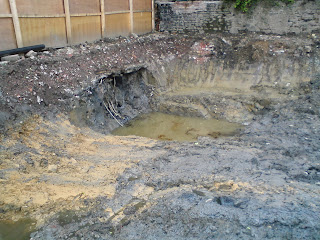Showing posts with label ECOSYSTEMS. Show all posts
Showing posts with label ECOSYSTEMS. Show all posts
Thursday, 28 November 2013
ECOSYSTEMS ACTIVITIES AND TEST
Wednesday, 27 November 2013
PROTECTING ECOSYSTEMS
There are laws to protect ecosystems.
One way of protecting ecosystems is to make them nature reserves.
In this way the authorities look after them and prevent them from deteriorating.
There are many nature reserves throughout the world.
 |
| Lagoon in Peñalara, photo by Miguel303 in wikipedia |
PROTECTING ECOSYSTEMS: OVEREXPLOITATION
Sometimes people take more animals or plants than the ecosystem can produce.
This is called overexploitation.
If we continue doing this, the animals or plants could become extinct.
One example is overfishing.
Sometimes people catch too many of one type of fish.
These fish are in danger of extinction.
This is happening to tuna fish and anchovies.
 |
| Overfishing |
PROTECTING ECOSYSTEMS: DEFORESTATION
Deforestation is the disappearance of forests.
This happens when trees are cut down for wood or to make space for fields to grow crops.
Forests animals also disappear.
Erosion is another problem which destroys ecosystems.
This is when wind and rain sweep away the soil.
Plants and trees disappear.
PROTECTING ECOSYSTEMS: POLLUTION
Pollution can affect air, water and soil.
PROTECTING ECOSYSTEMS: ECOSYSTEMS DETERIORATE
Living things in an ecosystem interact with each other.
An ecosystem deteriorates.
This can have serious effects on other living things.
Ecosystems deteriorate because of pollution, deforestation and overexploitation.
Tuesday, 26 November 2013
MAIN TYPES OF ECOSYSTEMS
There are many different types of ecosystems on Earth.
We can classify them into:
A.- Terrestrial ecosystems:
- Forests: forests have lots of trees. These provide food and shelter for animals.
- Grasslands: grasslands have lots of grass. Large herbivores eat the grass.
- Deserts: there are not many plants and animals in deserts because it does not rain very much.
B.- Aquatic ecosystems:
- Freshwater ecosystems: These are found in rivers, streams and lakes. Rivers and streams have moving water. Lakes have still water.
- Saltwater ecosystems: These ecosystems are in the sea. They are found on the coasts, in coral reefs and in the open sea.
 |
| Forest. Wikipedia |
 |
| Grassland. Wikipedia |
 |
| Desert. Wikipedia |
 |
| Freshwater ecosystem. Wikipedia |
 |
| Coral Reef. Saltwater ecosyste. Wikipedia |
Monday, 25 November 2013
ECOSYSTEMS
An ecosystem is made up of all the living things and all the non-living components that function together in one place:
- Living things: these are the plants and animals living in the ecosystem.
- The environment: this is everything which affects these living things, such as temperature, water, the type of soil, types of rock...
Subscribe to:
Posts (Atom)




